
Ben Kentish 10pm - 1am
13 December 2023, 10:28 | Updated: 13 December 2023, 12:25
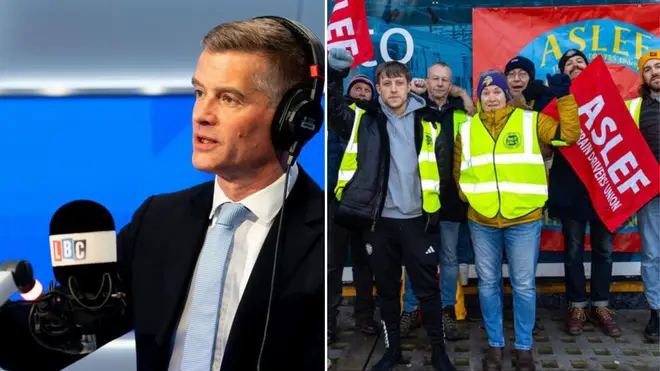
The Transport Secretary has urged the head of the Aslef union to put an existing pay offer to striking train drivers and "stop disrupting the railways".
Mark Harper told LBC's Nick Ferrari that the offer to take an average salary of a train driver to £65,000 is "on the table".
"We're not going to throw more money at train drivers," he vowed during a phone-in on the show.
One of the callers was Aslef general secretary Mick Whelan, whose members recently voted for another six months of industrial action.
Mr Whelan told Mr Harper: "We've experienced nothing but bad faith since you took over. But we are willing to meet you anytime in the next two weeks if you're willing to resolve this situation."
Read more: Rail misery continues as train drivers vote to go on strike for another six months
Read more: Rail strike threat ends until at least Spring as RMT union votes to accept pay deal

Mick Whelan's message to Mark Harper
Mr Harper replied: "When I first became Transport Secretary, I thought it was important to try and get a better dialogue between the department and trade union leaders. I met all of them.
"And you'll know now that we solved the dispute on Network Rail. Just recently, the RMT put the pay offer that was on the table to its members, and they overwhelmingly accepted it.
"So there's only one union now that's got a dispute, which are the train drivers, Aslef, represented by Mick Whelan.
"There is an offer on the table. It would take the average salary of a train driver from an average of £60,000 for a 35-hour, four-day week, to just under £65,000 for that 35-hour, four-day week.
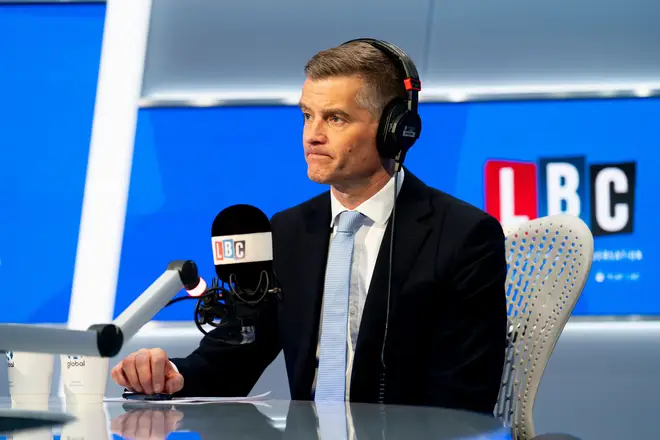
"It's on the table. The table everyone says I should get round, it's there. We're not going to throw more money at train drivers."
Mr Harper added that Mr Whelan "really should take the offer that's on the table, put it to his members, and ask them if they want to accept it. He hasn't done. I want trained drivers to get a pay rise and to stop disrupting the railways."
The Transport Secretary was challenged by Matthew, a train driver who phoned in later, who said: "You’re on about Aslef wasting taxpayers’ money.
"Can you just let us know and let the public know how much the DfT are paying [train operating companies] on each strike day?"
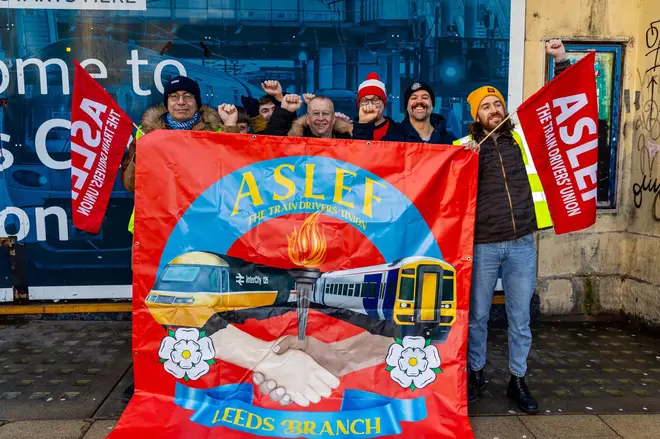
Mr Harper denied saying that the drivers were wasting taxpayers' money. He said: "When I was travelling, I sat down for nearly an hour with some of your colleague train drivers, and they were very clear that they wanted to vote on the deal."
Matthew hit back that Mr Harper might have a different experience if he spent some time with drivers at his station.
Addressing the issue of wasted money, the Transport Secretary said: "At the moment, the train operating companies are contracted to DfT."
He explained that "post-pandemic, all of the revenue goes to the Treasury, all of the cost land on the taxpayer, which means that if there’s a strike day, the cost does fall on the taxpayer.
"That’s because the taxpayer is subsidising the rail network every year by £12 billion.
"Which is why when we think about the pay rise that’s on the table, it has to be fair to drivers like Matthew - I want Matthew to have a pay rise - but it also has to be fair to the taxpayers who are effectively paying Matthew’s wages.
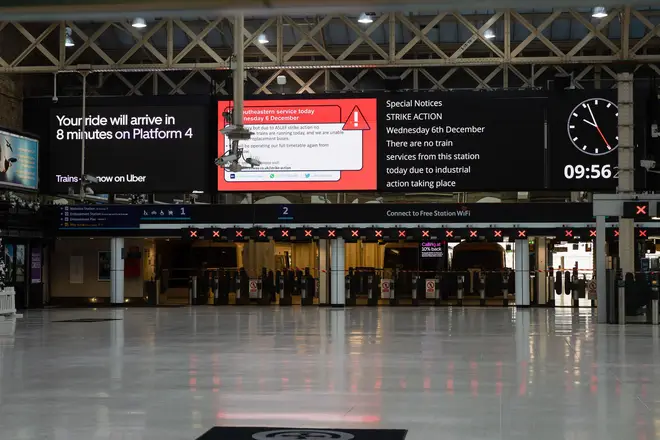
Mr Harper did not give exact figures for losses on strike days, but said: "[Striking] is very expensive and it has a big hit on the economy."
The original pay offer was made in January this year, and was rejected by Aslef leadership without being put to the members.
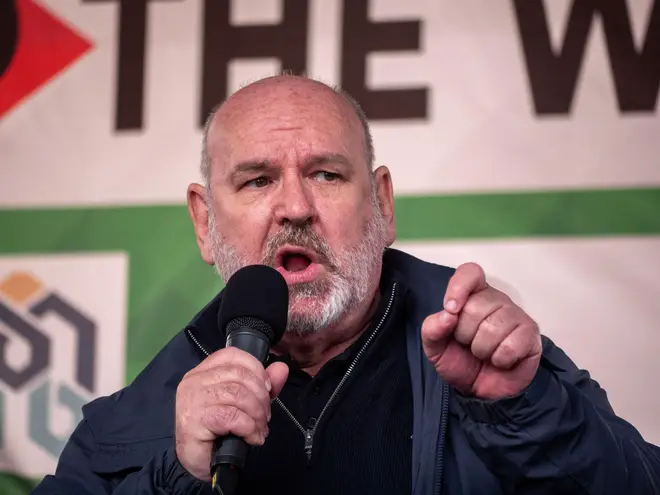
Announcing the new strike action after the vote earlier this month, Mr Whelan said: "We are in this for the long haul.
"Our members who have not had a pay rise for nearly five years now are determined that the train companies and the Tory government that stands behind them do the right thing."
"The cost of living has soared since the spring and summer of 2019, when these pay deals ran out.
"The bosses at the train companies - as well as Tory MPs and government ministers - have had increases in pay. It's unrealistic and unfair to expect our members to work just as hard for what, in real terms, is considerably less."
Meanwhile RMT members agreed in late November to a deal that included a backdated pay rise of 5% for 2022-2023, as well as job security guarantees.